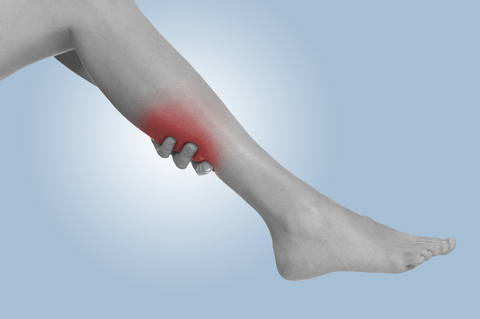 If you’ve ever experienced painful leg cramps in the middle of the night, you know they hurt! Waking up with shooting pains, typically in the calf, sometimes in the feet or even thighs can be scary and certainly interrupts needed sleep. Most of the time leg cramps are not a major cause for concern. But leg cramps that cause significant sleep disruption or cause lasting pain warrant a trip to the doctor. Consult your health care provider regarding your leg cramps and follow their advice.
If you’ve ever experienced painful leg cramps in the middle of the night, you know they hurt! Waking up with shooting pains, typically in the calf, sometimes in the feet or even thighs can be scary and certainly interrupts needed sleep. Most of the time leg cramps are not a major cause for concern. But leg cramps that cause significant sleep disruption or cause lasting pain warrant a trip to the doctor. Consult your health care provider regarding your leg cramps and follow their advice.
What causes nocturnal leg cramps?
One answer (not so popular) is that we do not always know, but here are a few major culprits of nocturnal leg cramps:
- Long periods of inactivity
- Muscle tiredness or overexertion
- Adults over age 50 are at highest risk for leg cramps.
- Pregnancy
- Dehydration
- Diabetes (especially for those who have diabetic neuropathy)
- A variety of diseases: Parkinson’s Disease, multiple sclerosis, kidney diseases, thyroid abnormalities
- Exposure to cold temperatures, especially cold water
- Certain medications are implicated including medications for COPD, blood pressure, coronary artery disease, congestive heart failure, high cholesterol, anti-psychotic medication, birth control, migraine headache treatments and diuretics.
- Insufficient potassium and/or calcium
- Sleeping in certain positions
What can you do when spasms occur?
Sometimes, in the middle of a leg cramp, it’s hard to keep your wits about you, but try these:
- Stretch the muscle right away: walk it off, flex your toes or do gentle knee bends.
- Warm showers or baths can provide relief if the area is still achy.
- Massaging the area of the cramp can also provide relief.
- Applying a heating pad to the affected area can also help.
What can you do to try to prevent nocturnal leg cramps?
- Stretch your legs before you go to sleep. Avoid pointing the toes, but do flex the feet gently several times.
- If you happen to own a stationary bike, 5-10 minutes of gentle biking just before bedtime appear to stave off cramps.
- Before you go bed, untuck all of the bedclothes, so they are nice and loose.
- Drink plenty of water (more than you think you need) throughout the day. Dehydration is a fairly common cause of leg cramps.
- Some health care providers also recommend supplementing with sports drinks that contain potassium.
